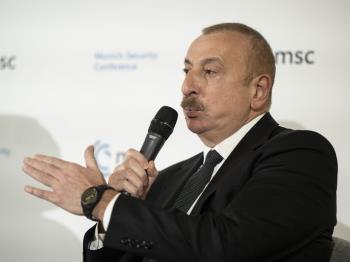Alwaght- Since the start of Gaza war, this Palestinian region has been facing not only the war crisis, but also famine, and despite the serious international warnings, this besieged strip is facing a severe food shortage from the north to the south.
In the meantime, although the small amount of international aid has not settled the crisis of the famine-stricken people of Gaza, a look at the statistics shows that the same amount of humanitarian aid sent does not fully reach the crisis-hit people of Gaza, especially in Rafah. According to UN figures, an average of 97 aid trucks entered Gaza in May, a 42 percent decrease compared to the previous month.
There are documents that show that after occupying and setting fire to the Rafah crossing, the Israeli regime not only prevented or destroyed humanitarian shipments, but also stole them. For example, at the end of May, the media recorded images of a group of settlers attacking Jordanian trucks carrying flour and humanitarian aid on the way to the Gaza Strip, during which the Israelis stole bags of wheat flour.
Recently, media outlets reported that nearly 70 percent of Gaza's aid was stolen from a wharf in this strip. Egypt, the border neighbor of occupied Palestine, which had earlier complained about Israeli obstacles set up ahead of the entry of aid trucks from Rafah border crossing, has now shared its grievance with the UN coordinator for Israeli theft of aid shipments.
In confirmation of these thefts, last week, Egyptian Foreign Minister Sameh Shourkry in a phone conversation with the UN Coordinator for Humanitarian Affairs and Reconstruction for Gaza Sigrid Kach strongly condemned the Israeli theft of the aids.
In addition, Reuters reported that nearly three-quarters of the humanitarian aid transported via the newly launched floating pier off Gaza coast was stolen en route to the UN warehouse. "We haven't seen a truck in a while," a UN official told Reuters. The news agency reports that most of the aid arriving at the Gaza Strip since Saturday was stolen.
To date, more than 569 tons of humanitarian aid have been sent across Gaza for further distribution by humanitarian partners. The aid is transported by sea from Cyprus where it is screened and the UN receives the aid in Gaza and coordinates its distribution.
Tel Aviv has taken over the operational control of Rafah crossing for weeks. The Israeli government claimed that it wants to help Gaza through this crossing, but the Egyptians have called these claims by the Israeli side false and to assuage international anger. Reports suggest that most of the trucks crossing passing this crossing are not intended for aid and delivery to people desperately in need but for Israeli merchants having bought these goods.
Since the occupation forces attacked the Rafah border crossing, Egypt has banned the use of the this border crossing, saying it is no longer safe for humanitarian work. At the same time, aid agencies lost access to important storage and distribution centers. As a result, around one million Palestinians, most of whom had already been displaced by the war, were forced to flee, deepening the humanitarian crisis.
The UN narrative of scale of the looting
Theft and looting of humanitarian aids in Gaza is so serious that it even endangers the life of the relief workers.
"Looting has deepened," says Georgios Petropoulos, head of the UN Office for the Coordination of Humanitarian Affairs (OCHA) in Gaza. He estimates that last Tuesday, three-quarters of the goods on the trucks entering Gaza through the crossing were stolen. UN officials say the vehicles are systematically attacked and stopped by armed gangs, particularly smuggled cigarettes, which are sold for exorbitant amounts on Gaza's black market. Recently, trucks bringing in fuel to Gaza have also been attacked.
Williams Schomberg, the head of ICRC Sub-Delegation, says that "aids are constantly looted. The issue is related to the collapse of civil order. Bandits and thieves have been active in Gaza. The situation there has become like a jungle without law or police, he said.
According to the law, the police is the only institution that is responsible for securing aid and protecting it from any looting and theft, but the Israelis block police escorts to the aid convoys both to prevent ease of the food crisis and to portrait the collpased social order in Gaza.
The UN claims that it has tried to reach out to Gaza police to ensure safety of the aid convoys, but Israelis disallowed it.
Farhan Haq, the Deputy Spokesperson of the UN chief, held the Israeli authorities responsible for ensuring the security of the aid, saying: "As the occupying power, the Israeli authorities must restore public order and security and facilitate safe access to humanitarian aid so that the aid reaches civilians in need."
Israeli bombardment of relief infrastructure in Gaza
But in addition to theft and destruction of aid convoys, the Israelis have been targeting the UN aid centers and infrastructure, destroying the capabilities of the body to do relief work.
The UN and aid groups, rejecting claims of being inefficient or understaffed, assert that the Israeli bombardment of infrastructure is the key reason why aiding capacity has collapsed.
Given this critical situation, it seems that Israeli-affiliated organized criminal cartels are responsible for implementing the civil collapse scenario and inflaming the humanitarian crisis in the coastal enclave.



























